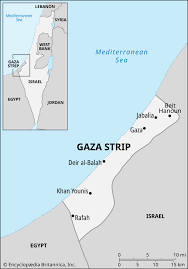The devastating war in Gaza and the subsequent Israeli blockade have plunged the Palestinian territory into a profound humanitarian crisis, forcing families to resort to desperate measures for survival. Food scarcity has become so severe that some Gazans are consuming sea turtles, an endangered species, as a last resort for protein. This dire situation highlights the extent of the crisis, with the United Nations and major aid organizations warning of impending famine across the territory. The blockade, which Israel justifies as a measure to prevent Hamas from diverting aid, has effectively cut off essential supplies, leaving markets bare and families struggling to afford even basic vegetables.
Majida Qanan, a 61-year-old displaced grandmother living in a tent in Khan Yunis, recounts her experience of preparing turtle meat for her family. Having exhausted other options, this marks the third time she has resorted to this unusual food source. While some of her grandchildren were apprehensive about consuming the reptile, she reassured them that it tasted like veal. The scarcity of food is palpable in her daily life, as she describes the struggle to afford even small quantities of vegetables, leaving no room in the budget for meat or other protein sources. Her story reflects the harsh reality faced by many Gazan families, forced to make difficult choices in the face of extreme deprivation.
The consumption of sea turtles, while a testament to the desperation of the situation, raises concerns about the conservation of these endangered creatures. While internationally protected, they become a source of sustenance for those caught in the crossfire of conflict and blockade. Fishermen, like Abdel Halim Qanan, explain that the turtles are consumed out of necessity, serving as a substitute for unavailable protein sources like meat and poultry. This highlights the ethical dilemma faced by Gazans: choosing between survival and the preservation of endangered species in a context where basic needs are unmet.
The extent of the humanitarian crisis is underscored by reports from international organizations. The UN’s Office for the Coordination of Humanitarian Affairs has declared the current situation in Gaza to be the most severe since the war began in October 2023, triggered by Hamas’s attack on Israel. The war, punctuated by brief ceasefires, has wrought havoc on the territory, leaving its infrastructure in ruins and its people struggling to survive. The World Health Organization has painted a grim picture of Gazans resorting to extreme measures, consuming animal feed, grass, and even sewage water out of desperation. These reports underscore the severity of the situation, highlighting the urgent need for humanitarian intervention.
The blockade, a central point of contention, has been criticized by Hamas, which accuses Israel of using starvation as a weapon against the Gazan population. While Israel maintains that the blockade is necessary to prevent Hamas from diverting aid, the impact on civilians is undeniable. The blockade has effectively choked off the flow of essential goods, leading to widespread food shortages and exacerbating the already dire humanitarian situation. This raises critical questions about the proportionality of the blockade and its impact on the civilian population, as international organizations call for increased access to aid.
The story of Gazans resorting to eating sea turtles serves as a stark symbol of the humanitarian crisis engulfing the territory. It reflects the devastating consequences of war and blockade, forcing families to make unimaginable choices in their struggle for survival. The accounts of grandmothers like Majida Qanan and fishermen like Abdel Halim Qanan provide a human face to the crisis, highlighting the urgent need for a resolution to the conflict and an end to the blockade, allowing for the free flow of humanitarian aid to reach the desperate population of Gaza. The international community must address this unfolding crisis and ensure that the basic human rights of the Gazan people are upheld, preventing a further descent into famine and despair.


